#Western Xia
Explore tagged Tumblr posts
Text
Homage to Chinese Intangible Cultural Heritage in Young Blood 2 (大宋少年志2)
From the show's Weibo
Western Xia Bald hairstyle, Taoist Lotus Crown, Men wearing zanhua, Song dynasty pearl makeup and Su embroidery

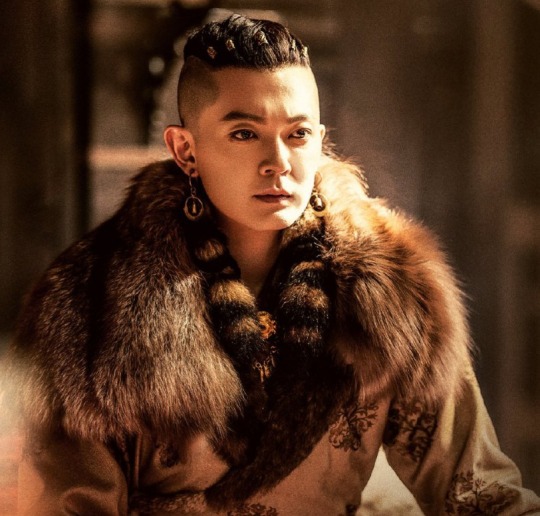

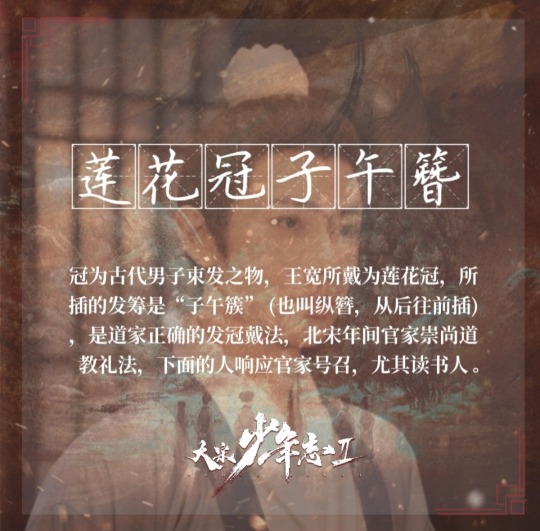
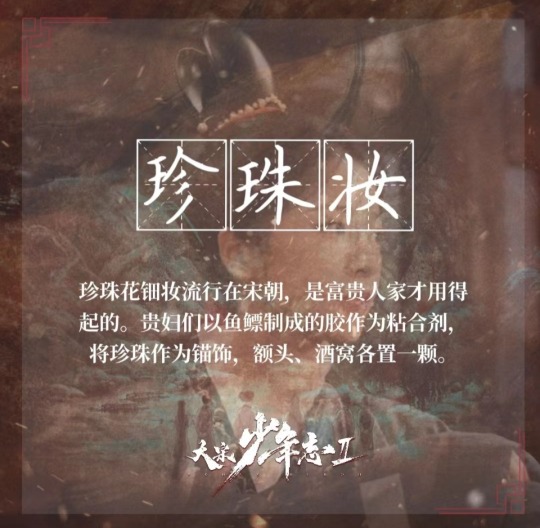


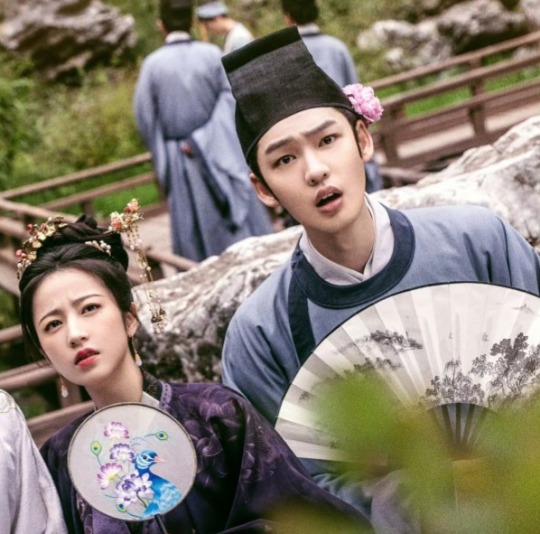
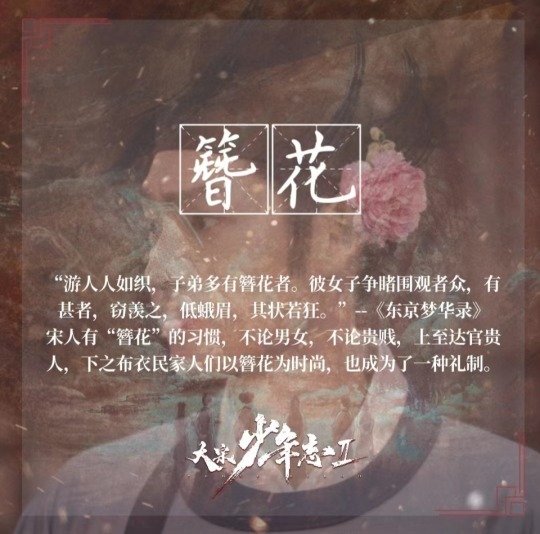
.
More posts by me
#young blood 2#cdrama#chinese drama#song dynasty#young blood#western xia#xi xia#pearl makeup#su embroidery#chinese art#chinese history#chinese culture#大宋少年志2#大宋少年志
15 notes
·
View notes
Photo

Shin Hye-sun, Lee Chae-min, not Ahn Bo-hyun?
10 notes
·
View notes
Text
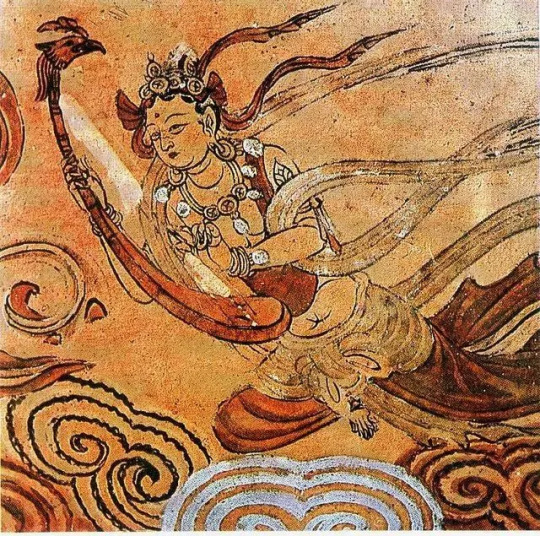
Phoenix headed konghou harp, Sui Dynasty (581-618 A.D.). Mogao Caves, cave 327, of which Chang Dai-chien would paint a replica. That painting was titled "中的飞天" Flying Sky or Flying Feintian.
1 note
·
View note
Text
youtube
i'm amused by this more than some of you could imagine. for a while, i've come to think that mongolians caused 3 major changes to the world but are mostly poorly told or rewritten by different countries.
for example, did you know that chinese textbook in the last 100 years, even taiwanese textbook, pretty much mentions practically nothing about the golden horde period in russia and ukraine and only consider mongolians as ethnic minority anomaly between 1235 and 1279. meaning, most of present day chinese think europe was only invaded by mongolia after china was taken.
so by this video, mongolians would have been invading both europe and china concurrently. and one could say that mongolians had already occupied moscow and parts of modern day ukraine around 1235 when mongolians were only on the verge of taking the ethnic han dynasty called "southern song" which took nearly 44 years to complete.
the significance is not the accuracy or the truth in history but that the chinese govt and taiwanese govt had systematically brainwashed citizens to believe that mongolians were always part of chinese continuity.
at the same time, most of people outside of china and taiwan probably would not realize nor understand that the communists (ccp) and nationalists (kmt) both paint mongolian as culture of tribal barbarians who were always the hostile threat to han chinese.
weird right? it's quite conflicting if you think about it. here's another subtle thing. during the initial mongolian expansion to conquer china, the 2 neighboring dynasties, western xia and jinn, were always written in textbook as if they were equivalent to barbarian civil wars unrelated to china, or at the time, southern song.
now look at where western xia or jinn were to modern day china. remember, chinese culture paints these dynasties as if they're barbarian dynasties not relating to han chinese. well, by today's geography, these dynasties would be the predecessor of present day beijin, shanghai, tianjin, dalian, or even parts of north korea.
youtube

the problem in russia's case, is that the people of russia were looking forward to wars. putin gave russian people a leadership to rally around.
the moral of the story is, democracy does not fall on your lap with you sitting by the sideline.
36 notes
·
View notes
Text
Roleplay Starter Call for Western Bandit Xia!

A Western AU for Xia where she is a bandit who loves to flirt with others and with danger. Besides traveling around and stealing hearts, she sometimes sings and dances at saloons as well. Known as the Wild Rose, Xia rarely stays in one place for too long, especially if others start suspecting she may be stealing some of their goods.
Like or reblog to be tagged in a roleplay starter with bandit Xia!
0 notes
Text
Best WLW Shows on TV Right Now by Country Part 2*
Here's your warning ⚠️: Some of these countries are just as evolved about their representation as any western TV Show. Some are just taking their first steps into representation and it's timid and/or flawed. If you want to see where things are at in that country or practice the language go for it.
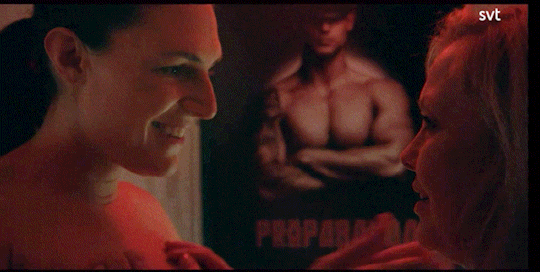
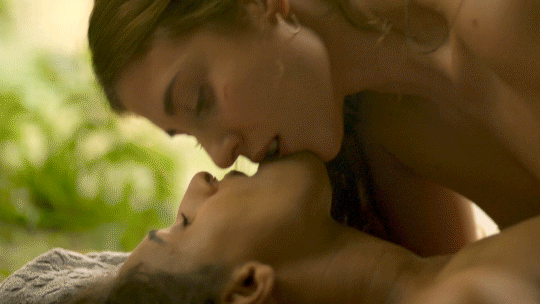
Tunna blå linjen (Thin Blue Line) and Dystopia, Sweden
youtube
Cyanide, Indonesia
Original title: Sianida
youtube
Aldri voksen, Norway
youtube
Fair City, Ireland
Xia Ye Zhi Dao Feng De Tian (The Lost World), China*
It's a Chinese drama, there are limits to what they can show
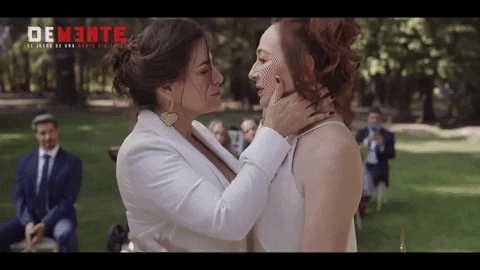
Demente, Chile
youtube
Las Villamizar, Colombia

Rojst ’97 (The Mire 97), Poland

Undercover, Belgium
youtube
Jutro će promeniti sve (Morning Changes Everything), Serbia
youtube
Bir Başkadır (Ethos), Turkey
youtube
Καρτ Ποσταλ, Greece*
Each episode is standalone episode.

Hotel Mondial, Germany
youtube
Mine, South Korea
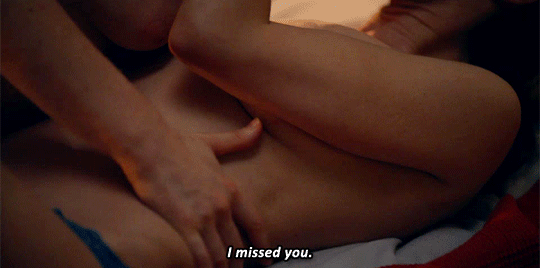
Ruxx, Romania

Stella Blómkvist, Iceland
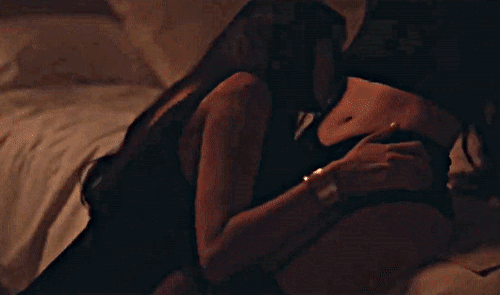
Señorita 89, México
youtube
Special shout out to the 2018 season of The bachelor in Vietnam that did that
#Tunna blå linjen#thin blue line#mine kdrama#ruxx#ethos Netflix#undercover tv series#the mire 97#Las Villamizar#demente#Fair City#Aldri voksen#The Lost World#Jutro će promeniti sve#Morning Changes Everything#the bachelor#Hotel Mondial#stella blómkvist#Dystopia#Kart postal#lesbian#wlw#lgbtq#lgbtqia#Señorita 89#gay#lgbt#bi#girls who like girls#sapphic#Cyanide
137 notes
·
View notes
Text
I read the Vow of Silver Dawn (although mostly machine translated), which is a Chinese web novel Disney commissioned because the sequels weren't doing well in China, since they didn't have any nostalgia about it. And it was very pro-jedi (in fact oddly unconcerned that the big reveal at the end meant that the protagonist didn't even know of his home planet and had his name westernized. But his master also made sure he knew the native language of his home planet). There are in fact three moments where they explained Jedi in a specifically Chinese cultural context. Paraphrased since I'm in an airplane about to take off:
"While the Jedi were free from earthly desires, they were also committed to the preservation of life" (as in, these are Buddhists but they actually do stuff)
"Jedi were less like knights and more like committed followers of the Dao"
And then there's an entire chapter where the mercenaries Sean (the Jedi protagonist) is teaming up with prank him by talking about moral cultivation in the martial arts, which are what I understand are concepts in Wuxia stories. Sean falls for it completely because it's consistent with his pre-existing training.
Basically, when Disney wants to make Star Wars popular in China they emphasis that the Jedi are combo Buddhists/Daoist Wuxia heroes.
Truly mystifying take I just saw:


Sorry for bursting in with negativity, but I truly did think that the pro-jedi side of SW was going to be less… like this. This is just Sinophobia at this point. Blaming China for Disney’s American/Western writers’ choices is rather telling of this person’s own biases.
This is not to absolve the CCP of anything. I’m not denying that the Chinese government is in fact a colonial force when it comes to ethnic/cultural minorities in China - but do you truly think that those mostly white writers with an anti-jedi stance is doing good ol’ CCP propaganda? For real? Yeah, no, surely these writers are free from their own, primarily Eurocentric ideals! It’s all Chinese propaganda! You’re so smart(/sarcasm).
And while the Chinese film market is rife in censorship (much like how Disney censors parts of their own shows even in the US, wow!), the media itself is far from actively hostile towards Buddhism as a whole. In fact many aspects of Buddhism, such as Shaolin, etc is rather popular in Chinese (Wuxia) media.
Not to mention the large population in China that believes in Buddhism (3 main branches, Han, Tibetan and Theravada), or follows some of its teachings - according to this 2018 survey, around 4% of the Chinese population are “formally” Buddhists, and 33% of Chinese adults, (~362 million adults!) believe in Buddha and/or a bodhisattva. I myself have grandparents who believed in Han Buddhist ideals and spent a few days every other month at a Han Buddhist temple, and have another friend who diligently follows Tibetan Buddhism.
In the end - blaming anti-jedi writing by mostly white writers on “Chinese propaganda” is truly such an interesting choice. Yeah, sure. That’s what happened. This is a conspiracy theory alright.
#also the story group under disney is way more pro jedi than legends#also for sean's name being westernized#you write sean/shawn/shaun in simplified chinese with two characters#which are then revealed to actually be his birth family name (xia) and personal name#so it wasnt something the jedi actively did
58 notes
·
View notes
Text
The reason it's so hard for modern scholars to read Western Xia script is b/c historically it was written by two scholars working side-by-side
You see, it takes two to Tangut
97 notes
·
View notes
Text

Comparison between Tangut and Chinese (more here).
Tangut is an extinct Qiangic language that was spoken in western China. It was the language of the Western Xia kingdom which was destroyed by the Mongols in 1227. The last known text in Tangut are two pillars erected in 1502.
Most of it has been deciphered thanks to the existence of bilingual Tangut-Chinese dictionaries, as well as most texts in Tangut that survived being Buddhist sutras that have versions in other languages.
The Tangut script is perhaps the most difficult script that has ever existed, since the average number of strokes per character is about ten. Traditional Chinese characters look simple in comparison.
13 notes
·
View notes
Text
…
Li Zeyan/Victor 🤝 Xia Yizhou/Caleb
Getting wildly fucked over by their english localization (in different, completely stupid ways) and being hated for being “abusive” by the western fanbase and thusly continuing my curse of only loving cn otome men who are always gonna be hated on hahahahha
But also: the 哥哥 to 哥哥 connection is real (if you know you know) hahahah
#Love and Producer#Love and Deepspace#Li Zeyan#Xia Yizhou#Mr. Love: Queen’s Choice#MLQC Victor#LZY AND XYZ ESTABLISHING THEMSELVES AS A SAFE PLACE FOR THEIR MCS BUT DIFFERENTLY#LZY: I will establish myself as a safe harbor for you to grow and learn#LZY: I will be the constant to your variable#XYZ: I will establish myself as a safe place for you while I F U C K E N A N N I H I L A T E everything that threatens you#XYZ: you are the center of my universe and the beginning and the end of it and that is why my name is XYZ#(space coordinates)#TFW when both my otps are mathematically correct *nods wisely*
7 notes
·
View notes
Text

Finds For 2014.
Robert Rental Mental Corrections
Dalek “Abandoned Language”
End Of A Year / Self Defense Family “Apport Birds”
aTelecine “Armour (Cut)”
A-Frames, The “Black Forest”
Rainforest Spiritual Enslavement “Black Magic Originated In Nature”
Cleanteeth “Pushing Rope”
Rubberoom “Bleach”
Unsane “Body Bomb”
Cabaret Voltaire “Crackdown”
Wild Nothing “A Dancing Shell”
Serengeti “Directions”
Thomas Lear & Robert Rental The Bridge
XXYYXX “DMT”
Tying Tiffany “Drownin’”
Leather Nun “Ensam I Natt”
George Duke “Feel”
Tony Hymas “Final Inspection”
Killing Joke “Goodbye To The Village”
Curve “Horror Head”
Rustie “Hyperthrust”
End Of The Year / Self Defense Family “It’s Not Good For The Man To Be Alone”
Bikini Kill “Jigsaw Youth”
Tunnel Canary “Jihad”
Professionals, The “Join The Professionals”
Sleaford Mods “Jolly Fucker”
Cabaret Voltaire “Just Fascination”
Chi-N.Y. Network “Keep The Fame”
Ariel Pink’s Haunted Graffiti “Kinski Assassin”
Fantome “Love”
Nite Jewel “Lover”
Minks “Margot”
Neon Indian “Mind, Drips”
Sleaford Mods “My Jampandy”
Grimes “Oblivion”
Young Galaxy “Pretty Boy”
Ariel Pink’s Haunted Graffiti “Round And Round”
Chrome Sparks “Send The Pain On”
Leapling “Seventeen”
Teen Daze “Shine On, You Crazy White Cap”
Zombi “Shrunken Heads”
Black Dice “Smiling Off” (DFA RMX)
Rubberoom “Style Wars”
DIIV “Wait”
Teen Daze “Waves”
General Lee & The Space Army Band “We Did It Baby (Pt. 1 & Pt. 2)”
Phil Western “We Have Come To Bless This House”
Severed Heads “We Have Come To Bless This House”
Xray Eyeballs “X”
Death Grips “5D”
Rory St. John “Astroakoustic One-Three”
Cloudface “Summer”
Ramleh “Elite Gymnastics track B4”
Fancy Books “Sponge Boy”
Duran Duran Duran Over Hard
Perfect Pussy “Big Stars”
Ringo Deathstarr “Two Girls”
Westerbur & Rowe “Side C”
Odd Future “Bitches”
M83 “Skin Of The Night”
Dangerous Birds “Smile On Your Face”
Au Revoir Simone “More Than”
Petticoats “Normal”
Joanna Newsom “Sadie”
Parquet Courts “Borrowed Time”
Slugabed “Sex” (Daedelus RMX)
Cleanteeth “Shitbreather”
Courtney Love Uncrushworthy
Japanther “Cable Babies”
Noh Mercy “Caucasian Guilt”
Visible Targets “Mechanical Man”
Michael Pipes “You Got Stopped”
Chromatics “Looking For Love”
Small Black Moon Killer Mixtape
Ringo Deathstarr “Summertime”
Au Revoir Simone “Let The Night Win”
Swervedriver “You’ll Find It Everywhere”
Empress Of “Don’t Tell Me”
No Joy “Hare Tarot Lies”
Xiu Xiu “Hi”
Muslimgauze “Hamas Cinema Gaza Strip”
White Arrows “Fireworks Of The Sea”
Naomi Punk “Fleeing Is Believing”
Slum Village “The Look Of Love”
Purity Ring “Grandloves”
Parquet Courts “He’s Seeing Paths”
Desire “Under Your Spell”
Japanther “Critical”
Starkey “Villagers”
Now Now “Wolf”
Pharmakon “Xia Xinfeng”
Mass Production “Slow Bump”
Atari Teenage Riot “Modern Liars”
Late! “Color Pictures Of A Marigold”
Peter Brown “For Your Love”
Black Marble A Different Arrangement
Ariel Pink’s Haunted Graffiti “Schnitzel Boogie”
Purling Hiss “Don’t Even Try It”
Omar Souleyman “Kell Il Banat Inkhatban (All The Girls Are Engaged)“
Cutthroats 9 Dissent
Poly Styrene (as Mari Elliott) “Silly Billy”
L.I.E.S. label Music For Shut-Ins
Jonwayne “Dumbo”
Carbonas “September Gurls”
Predator “Honest Man”
Panda Riot “Golden Age”
Whirr “Mumble”
Run The Jewels “Blockbuster Night Pt. 1”
Arca “Thievery”
Night School “These Times”
Thomas Jefferson Slave Apartments “Cyclotron”
Broadcast “Goodbye Girls”
Ariel Pink “Put Your Number In My Phone”
Ninos Du Brasil “Pandiero Sinchinsa”
NeruvianDOOM “Disastrous”
Thomas Jefferson Slave Apartments “Please Hear My Plea”
Future “Coupe”
Suicideyear “Hope Building A”
Hussy, The “EZ-PZ”
Carbonas “Frothing At The Mouth”
Night School “Birthday”
Krewe Of 77 “Three’s A Crowd”
Ekoplekz “Robert Rental”
SNTZXSNTZ “Boundless”
Wara From The NBHD “Squeal (Peel Off)”
Ariel Pink’s Haunted Graffiti “Fright Night (Never More)”
Mono/Poly “Alpha & Omega”
Casket Girls, The “Chemical Dizzy”
Bug, The “Void”
Suicideyear “Rememberance”
Standish / Carlyon “2 5 1 1”
Clark “Herr Bar”
Vereker “Rosite”
Pond “Leisure Pony”
Ninos Du Brazil “Tuppelo”
Pure X “I Fear What I Feel”
SpaceGhostPurrp “Mystikal Maze”
Dead Voices On Air “Philadelphia Introduction Comedy Routine”
Dual Action “NC-17 Drive In”
Consumer Electronics “Sex Offender Boyfriend”
Thomas Jefferson Slave Apartments ”Turntable Battlefield”
Bug, The “Swarm”
Suicideyear “I Don’t Care About Death Because I Smoke”
Travis Porter “Do A Trick” (Suicideyear RMX)
Fatima Al Qadiri “Star-Spangled”
Standish / Carlyon “Industrial Resort”
Ninos Du Brasil “Rebanho Espetacular”
Lussuria “Mondo Narcotico”
Factory Floor “How You Say” (Helena Hauff RMX)
Function & Vatican Shadow Games Have Rules
Giorgio Moroder “Giorgio’s Theme”
Vereker “Disconnect”
Axxa/Abraxas “Waiting Daze”
Lussuria “Keys To Unlock Paradise (Roman Showers)”
#omega#music#playlists#mixtapes#personal#industrial#synthpop#electronic#noise rock#techno#punk#noise#chillwave#hip-hop#rap#shoegaze#indie#hipster#d.i.y.#alternative
11 notes
·
View notes
Photo

Andong Station District, Boy - The first picture of a man's life "Warmness in coldness, resembles me"
Source: k-star-holic.blogspot.com
10 notes
·
View notes
Note
Hi! Same anon here! Don't worry I barely sent the ask like a day ago :P
Thank you for giving such a detailed answer! I gotta say, I never considered the Ds to be akin to plants (I did think of them being the chinese equivalent to kamis tho, I think the term was xia?) but I can see what you mean by that, maybe like trees? I like the idea of sentient sacred trees taking on human forms, wouldn’t it be cool if the "real" Tsuki-hime was one of their kind?
In a less serious note, when I read the plant part, my dumb ass brain started to think about Trigun, and Vash as a plant being in his universe with completely opposed ideology to the Ds, the one of unwavering love and faith in humanity despite most humans in Trigun being far worse than any of the literal evil ones in PSOH, and what would happen if they ever met :'D
Also, do you have any theories on why our D was sick and apparently needed a transplant of some sort? Personally I always thought that he may have been born "flawed" either due to their kind's equivalent to genetic degradation on their biology, or alternatively a literal manifestation of the ideals conflict between Sofu D and Papa D? Both?
Sorry if I ask too many questions, I had no idea PSOH had a surviving fandom until the 7seas announcement!!
huh. you know. i was fairly sure the term kami had been mentioned in at least one of the translations but i just checked the last two chapters in both and apparently not? though the el dorado chapter seems to confirm the meaning if not the name when it mentions the touch of a "dying god" and accepts d's blood, at a minimum; i'm not sure if the japanese original text uses the word "kami" either, but it's possible.
anyway, i've been kind of going with the assumption that they're something similar to that - not exactly gods in the western divinity sense, but more like beings of the land. i probably absorbed the term kami in regards to the Ds from fandom, but now that you mention it, it doesn't make all that much sense since he's chinese. the term in question in chinese seems to be "shen" (written with the same character) but it doesn't appear to be an exact equivalent in terms of meaning. i'll have to look more into it!
yeah the plant thing for me comes from several occasions generally associated with d and life/death (as mentioned before, the gattolotto extra, d entering a state of despair, d's blood turning into rare plants when he's running from vesca, d being taken over by plants when falling into despair, the plant core of the papasplosion) and also from the hilarity of leon only ever getting anywhere with a lady if they're plants (as per the flowers and the detective extras) and d lowkey also being one and following this trend 😂 though that latter bit is more the shipper goggles than anything lmfao

BUT!!! MORE IMPORTANTLY!!!! *rubs hands together* you fool! you just activated my trap card when it comes to talking about d's illness and all issues surrounding it! i love discussing this topic and poking fun at the tokyopop translation and putting up a murderboard full of red string for theories!
okay so the first thing you need to know is that the tokyopop translation took some. liberties. and is not entirely accurate. they seem to paint papa as far more of a villain and sofu as far more of a saint than they are, for one, and an important implication about d's health kinda goes in the wrong direction based on this. as such, if you only read the tp translation, you may be caught off-guard by some of what i'll say below.
once again under the cut because i'm a rambler!
things we know about d's illness:
needs sugar to keep from getting faint/dizzy
extremely low endurance at times (which makes leon think that he might have a heart condition) that either triggers or is triggered by his illness, as per the dragon chapter
may or may not be related to his eye (either as a symptom or a cause)
some sort of pain attack is involved? in the donor chapter we see him hover his hand in front of his throat, though it might be while it's in motion to go elsewhere, such as his heart (the dragon chapter has both the highlights near the throat, but the hand placed by his heart/lungs)
papa mentions to the pseudo-sister that d's body was "born incomplete" - whether this is true, he thought it was true (more on this below), or it was a simplification for her sake (as she had the mentality of a child) is not clear
d apparently is lacking several things, or they are in the process of failing (also as per the donor chapter). THAT BEING SAID, there is an interesting point here
needs sugar to keep from getting faint/dizzy
may or may not be associated with his eye
some sort of pain attack is involved? in the donor chapter we see him hover his hand in front of his throat
the illness has been present for at least several years, presumably for as long as d can remember (though not necessarily from birth; more on this later)
papa has been studying and trying to cure this illness also for years
after d drinks a "medicine" processed from the orangutan hybrid's body the symptoms seem to stop - i'm pointing this out as more of a curiosity thing, because on other occasions d couldn't as much as eat fish flakes without some ominous remarks about his bloodlust almost awakening again or something of the sort (you'll excuse me if i don't go looking for this particular quote right now)
papa mentions to the pseudo-sister that d's body was "born incomplete" - whether this is true, he thought it was true (more on this below), or it was a simplification for her sake (as she had the mentality of a child) is not clear
d's body had several things apparently lacking or in the process of failing (also as per the donor chapter). THAT BEING SAID, there is an interesting point here

this post from one of tumblr user @chaikat's psoh liveblogging japanese translation notes (several of which you'll see me mention at other times in this post because the info in there is just THAT crunchy) points out the following:
When Nue Erh says she’ll give D what he lacks, the part where she says “my eyes” in the eng version is actually specifically “this eye” in the jp version.
keep this quote in mind for a bit!

and now, back to the revelations of the final chapters!
aka, the panels that give me fucking brainworms:

uh??? hello??? one could understand that endless asexual reproduction of the same being through centuries would eventually result in mutations, and in fact it was under this assumption that i laboured when i first read psoh, but this conversation points to a different cause entirely, originating from sofu's interference.
doesn't help that the tokyopop version is wildly different, too:

tokyopop's version doesn't seem have anything to do with either d's illness or eye whatsoever, alas 😬 and considering several of their past instances of mistranslations and ad-libbing on this manga, i'm far less likely to believe their version of events.

another detail i didn't notice on my first go-arounds: the fact that the first words sofu d says in response to papa's accusation imply that the undertaking of q-chan's form took a sacrifice, and that this is related to d's eye. it took me this other translation notes liveblog post to realize that the two things were connected, since there's an entire other page with side-comments in the middle breaking up the dialogue flow.
ANOTHER most excellent thing that chaikat's commentary brings up and that i haven't seen on either translation is that sofu specifically mentions using the eye, or the term yorishiro:
(small text above Grandpa D): I borrowed one eye for the yorishiro.
i cannot claim to be even remotely close to an expert on shintoism, so here's a quote from wikipedia (which might or might not be correct) regarding yorishiro:
Yorishiro were conceived to attract the kami and then give them a physical space to occupy to make them accessible to human beings for ceremonies
i'm not sure if sofu d used it as this exact purpose, or if there's any sort of tradition in manga to lend it a slightly different meaning (jshk for example uses it as an artifact that stores the powers of the being connected to it, and something similar to this would make some sense to me here since he's shifting into a different form and putting his powers/presence away). either way, sofu has definitely used at least a portion of d's body for his own purposes without consent, so we cannot discard him using more.
*puts tinfoil hat on* it is at this point i bring up our precious orangutan sister's words again! she's listing the things she was made to replace in d's body, with the specificity of one singular eye. coincidence? i think not! i'm not entirely sure i agree that she means the left eye as considered in chaikat's post, but as an exercise let's think up the motivations for both possibilities:
replacing the left eye (purple, papa's colour): implies that the eye that was interfered with by sofu has bypassed the illness, and d's original one remains imperfect and bound to deteriorate; implies also that papa/sister know that the right eye is not a concern when it comes to d's health situation, which does track with papa's later accusation
replacing the right eye (gold, sofu's colour): implies that something is wrong with that eye, in ways that go far beyond the bounds of d's illness, since the original one would be okay to leave as-is; since papa is aware that the gold eye was caused by sofu, it would make sense to want to replace it due to both his resentment for sofu and concern for d
it is also worth mentioning that sofu never seems to have devoted any time to trying to cure d's illness, unlike papa (who was deemed incapable of raising a child by sofu, which may or may not be true), and that his reaction to the death of both his son and stray animals in a forest fire is to not even blink twice.
sofu having removed d from papa's care, mixed with d having mismatched eyes as a child under sofu's care, and the fact that we don't really see a mention of q-chan being around at that time make me poke interestedly at sofu d - because even if you buy that he *checks notes* only traded his grandson's eye to turn into a tiny cute creature in order to keep an eye (heh) on him, that doesn't really... track with the timeline of when he actually left d alone and had cause to become q-chan? which makes me wonder what sofu's actual use for the eye was, since he presumably had it since d was around-ish maybe five years old. (remember me saying "for as long as d can remember, though not necessarily from birth"? yeah.)
does this mean that he caused the illness? probably not, but fun to think about in connection to everything else! especially because the main point i'd expect d to ask when papa mentions the mutations/changes resulting from the inumerous replications of the d line would be his ?now-cured? illness, but what he does actually ask about is his eyes, despite papa and sofu - supposedly perfect clones - also having eyes that differ from the other (papa's being purple, sofu's being gold). one would think the illness would be the priority, but no! unless the two things are connected, and-- *continues to add red string to the murderboard*
anyway this is the theory i find the most fun to play with!
slightly less unhinged ones would probably be just. you know. normal replication mutations and genetic degeneration and stuff? or if you go with the tokyopop translations and i remember correctly, there are some implications that papa experimented on d before sofu took him away, but take that with a grain of salt. another thing that comes to mind is also the alice/daughter chapter, where after several generations the resulting rabbits were killed by the sugar and stuff consumed by the original generation - it could also be something like that, because since they're clones their bodies wouldn't have changed to adapt to the times, different foods, different air quality, etc, which would translate into poison for the newest generations.
i hope i didn't go too far down the theory rabbit hole, oops! 😂
#petshop of horrors#pet shop of horrors#psoh#psoh meta#count d#sofu d#howl rambles a lot#howl replies to stuff#awesome anon is awesome
14 notes
·
View notes
Text



Tracing the origin of the monk, the monkey and a horse
To give you an idea of how multi-sourced the story of Journey to the West is, this is a Dun Huang cave painting from the Western Xia Regime (A.D.1038-1227) featuring one of the earliest depictions of Xuan Zang heading west accompanied by a monkey-esque creature and a horse.
Check the link below to see the painting in the actual cave:
It is on the upper left edge of the wall that is left to the entrance of the cave.
Support our work:
Spotify (monthly fee is <$3)
Patreon (beginning at $3/month with access to loads of exclusive content)
Ko-fi (donate however much you like!)
Follow us on other platforms:
Twitter
Bilibili
Weibo
Our homepage
16 notes
·
View notes
Note
okay, what if it was for the eight demon sorcerers meet other cultures and discover that humans can actually have a varienty of skin color, and also the cases of people with albinism or vitilige! And honestly, i feel like some of them could be surprised or curious, especially with the fact that also heterochromia exists too! And it would be cool they discovering how some of the countries are noawadays! Such as brazil, america, mexico, china, russia, and also england! It could be pretty cool, especially at they reaction to afro people aswell!^^
Well, according to mine and another Questioner's research, the Eight Demon Sorcerers must have existed at least before 220 BC (last Dynasty of Ancient China). With that being said, even during the first recorded Dynasty of China (the "Semi-Legendary" Xia Dynasty) at around 2070 BC, humans were all over the world. Not as plentiful like today, but still present on almost every continent.

("Overview map of the world at the end of the 2nd millennium BC," Wikipedia)
Now, according to the cartoon, these were the locations of their kingdoms: - Tso Lan- The Moon - Shendu- China - Po Kong- Japan - Bai Tza- Southeastern coast of Europe (Atlantis, the Mediterranean Sea) - Dai Gui- Western coast of Europe (Spain?) - Tchang Zu- Western coast of the USA - Hsi Wu- Eastern coast of the USA - Xiao Fung- Latin America
This means they had the closest interactions with people in America (USA and Mexico area), southern Europe, and Far East Asia when they were on the Earth. However, we don't know how long their ruling was, so we cannot say if they took part in the Silk Road or even made contact with those who have migrated to South America (from the Bering Strait or form the Pacific) or even Australia. I have been looking into Lo Pei's apparel for a couple hours now and I cannot find anything matching his "Ling Dynasty" outfit, which is, in fact, not an actual Dynasty. Therefore, the Demon banishment date is still a mystery.
Anyway, seeing as how they are extremely racist and believe humans are here to serve them, I think they would be curious on their variety of skin color, but not in the way you probably want. For example, they probably noticed people with darker colored skin can work under the Sun more than those with lighter skin, therefore, depending on the Demons and their domain, they would probably prefer one skin tone over the other for labor. Although, as seen with Hsi Wu and Shendu, some Demons may keep humans for entertainment purposes that do not require practicality, meaning they may go with what looks the best for the job. Every human is a slave to them, no matter what they look like.
If you want my honest thoughts about the Demons' thoughts on albinism and vitiligo, it's not going to be nice. Don't get me wrong, I personally do not think there's anything wrong with either skin, but to the Demons it would most likely be laughed at. Being so drained of color even the light hurts you? That's pathetic. Being patchy like a filthy farm animal? That's funny.
Don't even get me started on Po Kong and her eating habits. She probably wants to taste every single human of all cultures/ethnicity and skin colors to see if they taste different, which tastes the best, and what they go good with. She could easily wipe out an entire group of people if not careful.
Anyway, how they would react to the modern day. Well, we already saw some of it during Season 2 when they were released one by one. They seem pretty chill about it, nothing too over-reactive like, "Wow! Humans did this?! That's unbelievable!" If anything, they would say, "Huh, impressive. Anyway, this is mine now and I want 20 more." This comes off to me as the Demons know humans are great at making and building things, even believing they can make extravagant buildings on their own, but they don't care. Demons just want them to use this power for their own wants. Heck, they probably expect humans to always make great things, so the stuff that we have today probably won't phase them that much, just, "Hey, why didn't you make this for us way back when?!"
If anything, the Demons might be so impressed/inspired by what humans have made that they want their entire kingdom to look like it and then claim it as their own idea. Like, 'yeah, humans have made these widely unique structures/details, but it was I who designed this kingdom! What they did was a waste of ability!'
Remember, EVERYTHING human-wise goes back to the Demons and how they are better and humans are just things to control and make serve. Humans are only tools/pets for the masters to use and none should not put a single human over demon-kind. They are, like I said, straight up racist towards humans, and a lot of people forget that crucial detail when making fan stuff about them.
I think the only Demon out of the Eight that could possibly make a genuine, "Great job!" comment to a human would be Xiao Fung. He seems to be the most down-to-earth one and is actually seen to get along with humans. However, like I said, I'm pretty sure he still views himself higher than them, but I think Xiao Fung is more low-key "appreciative" if you do the right thing for him.
8 notes
·
View notes
Text
Wang Chuan Feng Hua Lu (忘川风华录) Masterpost

Wang Chuan Feng Hua Lu (忘川风华录) is a Vocal synth (Vocaloid and SynthV) music project. It consists of songs themed around different figures throughout Chinese history. The project is a collaboration between different artists and creatives, with music and videos featuring prominent traditional Chinese elements. The project's title translates to "The Records of Magnificence of the Wangchuan" - In Chinese mythology, "Wangchuan" (or River of Forgetting) is a river in the Underworld that can rid one of their past life's memories, similar to the river Lethe.
A mobile game adaptation has also been developed by NetEast. Unfortunately, I haven't played it so I can't give much insight on it. However, I assume that its premise is similar to that of the idea behind the project as a whole: all these historical figures meeting each other in the Underworld after they died. Maybe.
You can find all the songs on Bilibili. The official Weibo can be found here. The game's website, which includes all characters appearing so far in the game, can be found here, and its Weibo can be found here.
(If you prefer YouTube, I've also put together a handy playlist. Please know that most of these videos are reposts though, so please watch the original Bilibili MVs if you can!)
This blog is where I will be posting everything I feel like I need to say about the songs in this project. A lot of it is lifted from my Twitter account but will be in much more detail. Note that I probably won't touch collab songs, or songs that don't focus solely on the project's own characters.
Disclaimer: I do not speak Chinese, nor am I an expert on Chinese history. Therefore, I cannot reliably translate the lyrics to these songs, nor my words should be taken as gospel. I am merely a nerd gushing about my hyperfixation.
Playlist
多情岸 【Duo Qing An】 ➼ B link
洛阳怀 【Luo Yang Huai】 ➼ B link
易水诀 【Yi Shui Jue】 ➼ B link
山河令 【Shan He Ling】 ➼ B link
簪花人间 【Zhan Hua Ren Jian】 ➼ B link
栖凰 【Qi Huang】 ➼ B link
心上秋 【Xin Shang Qiu】 ➼ B link
祖龙吟 【Zu Long Yin】 ➼ B link
如见青山 【Ru Jian Qing Shan】 ➼ B link
竹林间 【Zhu Lin Jian】 ➼ B link
天下局 【Tian Xia Ju】 ➼ B link
青鸟衔风 【Qing Niao Xian Feng】 ➼ B link
木兰行 【Mu Lan Xing】 ➼ B link
好字唯之 【Hao Zi Wei Zhi】 ➼ B link
不可道 【Bu Ke Dao】 ➼ B link
水叙湖风 【Shui Xu Hu Feng】 (collab) ➼ B link
是非 【Shi Fei】 ➼ B link
风起甘露 【Feng Qi Gan Lu】 (collab) ➼ B link
谓剑 【Wei Jian】 ➼ B link
万象霜天 【Wan Xiang Shuang Tian】 (New Year event song) ➼ B link
千秋梦 【Qian Qiu Meng】 ➼ B link
易安难安 【Yi An Nan An】 ➼ B link
惊鹊 【Jing Que】 ➼ B link
高歌破阵 【Gao Ge Po Zhen】 (collab) ➼ B link
不赴 【Bu Fu】 ➼ B link
西行 【Xi Xing】 ➼ B link
大航海家 【Da Hang Hai Jia】 ➼ B link
牡丹乱 【Mu Dan Luan】 (collab) ➼ B link
倾国 【Qing Guo】 (collab) ➼ B link
相虎 【Xiang Hu】 ➼ B link
补天裂 【Bu Tian Lie】 ➼ B link
此期盈期 【Ci Qi Ying Qi】 (1st anniversary song) ➼ B link
破云来 【Po Yun Lai】 ➼ B link
归钓吟 【Gui Diao Yin】 ➼ B link
始见千秋 【Shi Jian Qian Qiu】 ➼ B link
临川浮梦 【Lin Chuan Fu Meng】 ➼ B link
将军行 【Jiang Jun Xing】 ➼ B link
妄语人间 【Wang Yu Ren Jian】 ➼ B link
数风流 【Shu Feng Liu】 (2nd anniversary song) ➼ B link
问剑春秋 【Wen Jian Chun Qiu】 ➼ B link
起战令 【Qi Zhan Ling】 ➼ B link
人间应又雪 【Ren Jian Ying You Xue】 ➼ B link
旷古回响 【Kuang Gu Hui Xiang】 ➼ B link
墨隐侠声 【Mo Yin Xia Sheng】 ➼ B link
桃源故人 【Tao Yuan Gu Ren】 (3rd anniversary song) ➼ B link
燕双归 【Yan Shuang Gui】 ➼ B link
拜云台 【Bai Yun Tai】 ➼ B link
思华年 【Si Hua Nian】 ➼ B link
承天 【Cheng Tian】 ➼ B link
*Note: The anniversary songs are probably for the game's anniversaries, as the project itself is more than 5 years old.
Albums
Vol 1: 溯洄 【Su Hui】 Includes character songs from Duo Qing An to Zhu Lin Jian. Features human vocals.
Vol 2: 踏浪 【Ta Lang】 Includes character songs from Tian Xia Ju to Yi An Nan An + Shui Xu Hu Feng.
Vol 3: 数风流 【Shu Feng Liu】 Includes character songs from Bu Fu to Yan Shuang Gui, and the two anniversary songs.
Visual character guide:
PRE-QIN | QIN | WESTERN CHU | HAN | THREE KINGDOMS | JIN | NORTH & SOUTHERN DYNASTIES | TANG | FIVE DYNASTIES & TEN KINGDOMS | SONG | YUAN | MING | QING | DREAM
#忘川风华录#wang chuan feng hua lu#wcfhl#chinese music#vocasynth#vocaloid#synthv#vocaloid project#synth v project#synthesizer v#vocal synths#long post#this is the culmination of a 3 year brainrot#i will try my best
20 notes
·
View notes